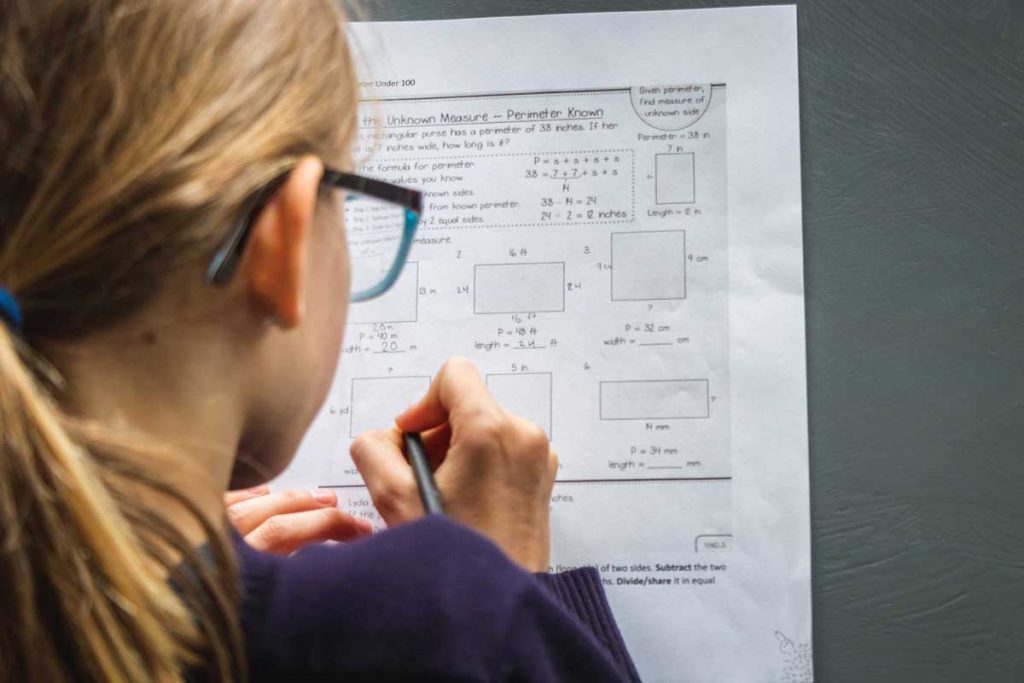In general, ‘standardisation’ means uniformity and consistency of practices in an industry or environment. The concept is very useful in business practices (processes or manufacturing), in the form of quality assurance, consistency of service, transfer of technology, and many others.
The field of education and the process of admissions into educational institutions have also used this concept, whereby historically, schools, colleges, and universities have used standardised tests as entrance exams for prospective pupils. Such practice adds consistency, transparency, and objectivity to the admission process.
However, in these ever-changing times, academia must evolve, keeping abreast of technological advancement, aligning with the changing market demands, and adapting pedagogic practices to make the classroom more diverse and inclusive.
So referring to standardised tests and entrance exams, is it enough to test students on their Maths, Science, or English abilities, or a similar smaller range of subjects that may not actually reflect their broader talents? Is it relevant in this day and age to predict a student’s success or assess their eligibility for admission based solely on such criteria?
As technology redefines careers, education must evolve to meet these new challenges
The exponential growth of technology has redefined job roles and career pathways for graduates. It is not an exaggeration to say that, as educationists, we do not even know what careers we are preparing our students for. Gone are the days when there were siloed degree programmes.
For example, medicine is not just limited to traditional ways of diagnosis, prognosis, and treatment – in the era of the Fourth Industrial Revolution, we are now talking about Robotic surgeries, the use of Virtual Reality for patient care, and the use of Artificial Intelligence for diagnostics. The bottom line is: in modern education, we need to focus on the need for multidisciplinary and interdisciplinary knowledge and skills among university candidates.
Technology plays a big role in calling for reform in this practice. In the world of Artificial Intelligence conversational bots, such as ChatGPT for example, essay writing, one of the skills assessed by entrance exams, becomes less important. With a disclaimer here, students are expected to maintain academic integrity and embrace technology responsibly to aid in their learning.

This is a topic for another debate, but it is worth mentioning because it is not only entrance exams that need redefining. All educational assessments require major rethinking and redesigning in this new information era, so that assessments are embedded in the learning itself, not just testing information retention.
Additionally, with the changing nature of the job market and the future skills required, it is crucial to pay attention to how much our graduates possess essential skills like problem-solving, critical thinking, communication skills, and teamwork – all of these lead to making them agile, nimble, and adaptable to change. In addition, research, independent learning, and information literacy make them lifelong learners – in short, ‘learning to learn.’
Diversity and inclusion must be considered during the admissions process
Furthermore, the ‘one size fits all’ approach to standardised testing does not apply to all learners anymore. Diversity and Inclusivity in the classroom is the need of the time. It is essential to recognise that students have ‘learning differences’.
Rather than using the term learning disability, we need to acknowledge that students are differently-abled or are neurodivergent. For example, this may include various neuro-cognitive conditions, and educationists must prepare a bespoke learning plan for differently-abled individuals and provide dedicated support so that their learning environment is suited to their needs.
How can we generalise or justify the use of standardised exams to test the ability of candidates who may process information in a different way? It is also time to challenge the wrongly assumed definition of a neurotypical individual, which is part of a larger debate that does not only concern university admissions.
For example, a student with the condition of ‘Dyscalculia,’ a cognitive difference in numerical processing which means a student has difficulty in performing arithmetical calculations, may not be able to perform well in the Mathematics part of a standardised test because of this pre-existing condition. This should not impact whether or not they can access a university education.

Though some standardised tests like ACT that are used in the USA allow extra time for students with learning differences, the condition has to be declared and proven with documents. This may not be possible for cases with borderline conditions. Studies also show that not only do students with learning differences struggle with standardised testing, but its implications can impact their emotional and mental health, affecting self-esteem and causing them to question their abilities.
The UAE is leading the way in international best practice
However, some changes to standardised testing are being seen across the world. For example, many colleges in the USA have chosen to go test-optional or test-blind, which means they no longer take test scores into consideration. This, to a certain extent, makes education more equitable; however, it still limits the choices of the applicants to only those institutions that have implemented this practice.
In the UAE, the policy of using EmSAT – The Emirates Standardized Test, a national system of standardised computer-based tests based on United Arab Emirates national standards has been eased, which will be implemented in the 2023-2034 academic year.

The announcement, which came only a few days ago, was well received by higher education institutions across the country. Dr. Ahmad Belhoul Al Falasi, Minister of Education, said: “The decision comes as part of the continuous efforts to develop the education system in the country in accordance with international best practices.”
Universities must prepare our students for the challenges of the future
While some amount of standardised assessments are necessary, the forms of assessment currently in place need to adequately measure student learning and ultimately cause more harm than good. Hence reforms at a higher level will not only make education more equitable and inclusive, but also broaden the entry criteria. This will ensure that our students have the opportunity to choose a discipline as per their interests, skills, and abilities, and that our graduates are ready to take on the challenges of the 21st Century and pursue the careers they want and deserve with more transferable and practical skills.









